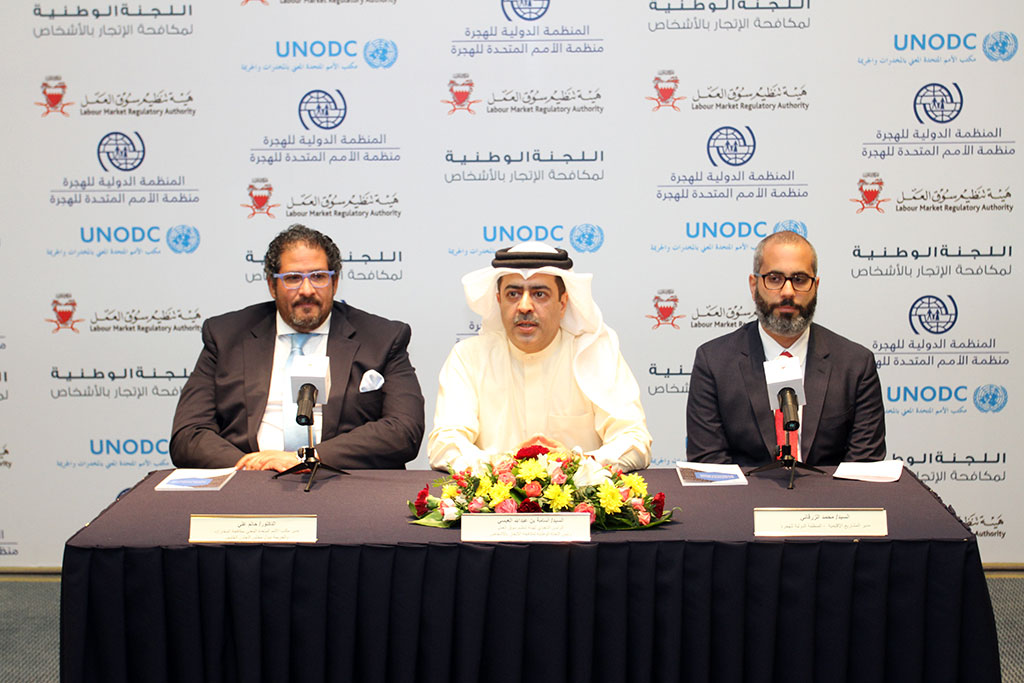A NEW system to report human trafficking allegations has been launched in Bahrain.
The National Referral Mechanism for Victims of Trafficking in Persons involves training first responders to assess cases and help victims.
Booklets with special forms and emergency numbers will also be distributed at police stations, embassies, places of worship and to Non-Governmental Organisations (NGOs), offering advice on helping victims of trafficking.
Details were announced yesterday by Labour Market Regulatory Authority (LMRA) chief executive and National Committee to Combat Trafficking in Persons (NCCTIPs) chairman Ausamah Al Absi.
“The National Referral Mechanism explains in detail the steps to be taken by those whose job does not involve dealing with crime –such as labour inspectors, doctors, NGOs to even priests – so they can assist a trafficking victim,” said Mr Al Absi.
“There is a system in place where police transfer a case to the Public Prosecution, which then forwards it to the court.
“The mechanism will help ensure the victim goes through that system without wasting any time.”
Mr Al Absi chaired a meeting yesterday attended by officials from the International Organisation for Migration (IOM) and the United Nations Office on Drugs and Crime (UNODC), during which diplomats, NGOs and social workers were briefed.
Once a case form is submitted by a first responder, it will be mandatory to carry out a medical test, file a police case and inform the relevant embassy.
“We are giving confidence to the first responder and the victim that their case will go through different steps and they will be informed about it at all stages,” he added.
LMRA employees and other government staff have already undergone training to adopt the new protocol.
“This is a first-of-its-kind initiative in the region to identify, protect and assist victims of trafficking,” added Mr Al Absi.
“We are even distributing booklets with sets of rules in churches, where domestic workers facing issues seek help as they are afraid to go to the police.”
The mechanism is similar to a system already in place in the UK, where various government agencies are tasked with identifying victims of trafficking.
In the UK suspected trafficking cases go through two stages once potential victims have been identified.
The first is a five-day process in which officials determine whether an individual is a victim of trafficking, If they are then the second stage involves a 45-day information and evidence gathering period.
“For example, if there is a court verdict that classifies a victim of trafficking, then another process will start to protect the right of this victim such as a compensation case,” said Mr Al Absi.
He added people can also call 995 to report cases to the Migrant Workers Protection and Assistance Unit.

